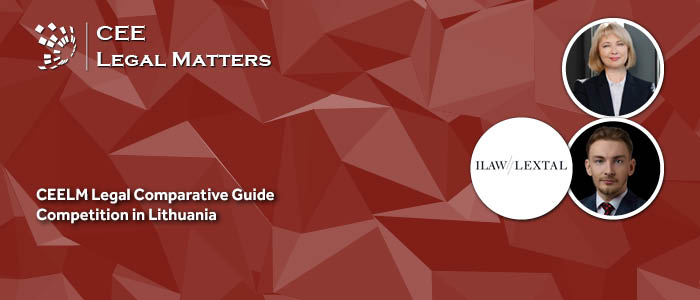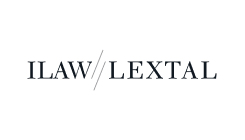Contributed by Ilaw Lextal.
1. What are the main competition-related pieces of legislation in Lithuania?
The primary legislative framework governing competition is the Law on Competition of the Republic of Lithuania (Competition Law), which encompasses various aspects such as anti-competitive agreements, abuse of dominance, and merger control, imposes specific fair competition obligations on public institutions and provides specific provisions for the enforcement of state aid. This law also prohibits unfair trading practices including the disclosure of commercial secrets, improper employee poaching, and trademark misuse while regulating private claims for damages. Additionally, it establishes the institutional structure, outlines enforcement procedures, and liability provisions, and addresses international cooperation.
Complementing the Competition Law, there exist several related pieces of legislation.
The Law on Prohibition of Unfair Practices by Retailers and the Law on the Prohibition of Unfair Trading Practices in the Agricultural and Food Supply are the sector-specific laws.
The aim of these laws is to prevent retailers having significant market power from abusing it and to ensure the balance of interests between these entities and food and beverage suppliers.
Prohibitions of unfair practices provided for in these laws apply to the five biggest retailers: Lidl Lietuva, Maxima LT, Norfos mazmena/Rivona, IKI Lietuva, and Rimi Lietuva.
Protection from unfair practices of the above-mentioned retailers is given to food and beverage suppliers that:
- are established in any EU Member State or outside the EU;
- entered into a wholesale purchase and sale agreement with the five biggest retailers on the purchase of food and beverages intended for sale to consumers;
- have an annual turnover from ordinary economic activities, including the annual turnover of all associated undertakings, that did not exceed EUR 350 million in the past financial year.
The laws prohibit the performance of any actions contrary to fair business practices, whereby the retailers’ operational risk is passed onto suppliers or additional obligations are imposed on them, or which restrict the ability of suppliers to operate freely in the market and which are expressed as requirements for the supplier.
If the actions of a retailer violate provisions of the laws, such a retailer shall be liable under the procedure set by the latter laws.
Furthermore, the Law on Municipal Government, primarily focused on municipal governance, contains provisions mandating municipalities to obtain approval from the Lithuanian Competition Authority before undertaking new economic activities or establishing new entities.
2. Have there been any notable recent (last 24 months) updates of Lithuania competition legislation?
In 2023, amendments to the Competition Law were adopted. These amendments aim to create conditions for more effective enforcement of competition and state aid rules in Lithuania. Among the most important changes, rules on the recovery of unlawful and/or incompatible with the EU internal market state aid were introduced.
In 2022, the Lithuanian Government adopted a resolution approving the description of the procedure for setting fines for infringements of the Competition Law, which took effect from May 1, 2023. This change led to a more detailed regulation of the methodology for setting fines and established that some circumstances could lead to a reduction of a fine, even if it reaches a maximum threshold of up to 10% of the total annual worldwide turnover.
In 2022, amendments to the Law on Public Procurement were adopted, according to which, when the Competition Council’s decisions on anti-competitive agreements in public procurement become final, the contracting authorities that carried them out will be obliged to go to court, either their own or through the central purchasing body, if it has made the relevant procurement, or to take other measures of compensation for damages and claim compensation for damages. The amendments to the law provide that, unless proven otherwise, the damage caused in public procurement by restrictive agreements between suppliers shall be deemed to be equivalent to 10% of the value of the supplies, services, and works covered by the concluded contract and, in the event of termination of the contract, of the value of the payments made by the contracting authority for those supplies, services, and works.
A pretty notable draft amendment to the Competition Law is currently under discussion in Parliament. It aims to provide an additional function of the Competition Council – consulting undertakings (public and private) on their compliance with Competition Law requirements. This draft also includes an amendment according to which appealing against the Competition Council’s decision to impose a fine on an undertaking suspends the enforcement of the fine and the interest until the date on which a final ruling is awarded. Currently, the legislation provides that a fined undertaking must pay it despite appealing the Competition Council’s decision.
3. What are the main concerns of the national competition authority in terms of agreements between undertakings? How is the sanctioning record of the authority?
Horizontal anti-competitive agreements are one of the centerpieces of the Competition Council’s attention.
Recent Competition Council’s decisions on cartels:
- Lithuanian Pharmacy Association and eight pharmaceutical companies restricted competition when they agreed on the margins of reimbursable medicines before submitting them for approval to the Ministry of Health;
- Lithuanian Association of Real Estate Agencies and its 39 members agreed not to solicit each other’s clients and brokers, and thus restricted competition.
Both decisions are appealed, and court decisions are pending.
As far as vertical agreements go, the Competition Council has not been very active until now. However, in 2023, cosmetics wholesalers and retailers were fined for price-fixing agreements on skincare and other cosmetic products.
4. Which competition law requirements should companies consider when entering into agreements concerning their activities in Lithuania?
In general, the competition law landscape in Lithuania closely aligns with that of other EU jurisdictions, with both the Competition Council and national courts striving to maintain consistency with the practices of the European Commission and courts.
Agreements involving international companies in Lithuania tend to be vertical in nature, such as distribution or similar supply agreements. A degree of caution is advisable when such agreements include clauses restricting resale prices (such as outright bans on buyers setting their resale prices independently or recommending a price, which, when not followed, can be grounds for terminating the distribution agreement), exclusivity arrangements (such as single branding or exclusive distribution), or quantity-forcing agreements (such as minimum purchase volume requirements). While such arrangements may often be justifiable when neither party’s market share surpasses 30%, certain specific provisions, like fixed or minimum resale price restrictions, or single branding agreements extending beyond five years, may prove more challenging to justify.
It’s important to consider that the Lithuanian market is relatively small, and the Competition Council tends to be cautious regarding geographic market definitions extending beyond Lithuania’s borders. Consequently, exceeding the 30% market share threshold, beyond which justifying vertical restraints becomes more difficult, is more likely, especially in cases where geographic market definitions are expansive.
5. Does a leniency policy apply in Lithuania?
It does. The leniency policy hasn’t changed for quite some time, and the conditions are as follows:
- disclosing participation in an anti-competitive agreement;
- the first person to provide evidence not already possessed by the Competition Council, sufficient enough for conducting raids or establishing the infringement.
- halting involvement in the infringement, unless instructed otherwise by the Competition Council;
- cooperating with the Competition Council throughout the investigation;
- not attempting to conceal any evidence of the infringement or disclosing leniency application intentions to other parties;
- not being the one who initiated the agreement itself.
If some conditions are met and others not (e.g., served documents first but was the one who initiated the agreement), the undertaking can have its fine reduced rather than exempted from it.
An individual acting as a whistleblower has the opportunity to present evidence to the Competition Council regarding a potential horizontal or vertical price-fixing agreement. If the stipulated conditions outlined in the Law on Competition are fulfilled, the whistleblower may be eligible for a monetary reward of up to EUR 100,000.
6. How is unilateral conduct treated under Lithuanian competition rules?
Unilateral conduct under the Competition Law is treated quite similarly as in the European Union under TFEU Article 102.
Holding a dominant position is not prohibited, however, dominant undertakings shall comply with stricter requirements as opposed to their competitors that do not exercise such market power. It shall also be prohibited to abuse a dominant position within a relevant market by performing any acts which restrict or may restrict competition, limit the possibilities of other undertakings to act in the market, or violate the interests of consumers.
Such abuse may, in particular, consist in:
- imposing unfair purchase or selling prices or other unfair trading conditions;
- limiting production, markets, or technical development to the prejudice of consumers;
- applying dissimilar conditions to equivalent transactions with other trading parties, thereby placing them at a competitive disadvantage;
- making the conclusion of contracts subject to acceptance by other parties of supplementary obligations which, by their nature or according to commercial usage, have no connection with the subject of such contracts.
Abusing a dominant position may result in:
- a fine of up to 10% of the total annual worldwide turnover in the preceding business year;
- the restricted right of the manager of the enterprise to manage a public and/or private legal entity, or be a member of the collegial supervisory and/or governing body for three to five years, as well as a fine of up to EUR 14,481;
- victim’s claims for damages;
- loss of good repute.
7. Are there any recent local abuse cases of relevance?
The last case was investigated and ruled in 2010 (margin squeeze conducted by an ex-monopolist internet infrastructure holder). The Lithuanian market is relatively small and it seems that the Competition Council’s priorities lie within agreements between undertakings and mergers.
It is worth noting that a lot of sectors (telecommunications, internet, energy) where the presence of dominance can be found are often supervised by specific authorities such as the Communications Regulatory Authority or the National Energy Regulatory Council, and the Competition Council is not involved.
8. What are the consequences of a competition law infringement?
For the undertaking:
- a fine (up to 10% of gross annual turnover in the previous financial year);
- prohibition to partake in public procurement (up to three years);
- damage to reputation;
- threat of legal action for damages (private enforcement).
For management:
- fine (up to EUR 14,481);
- restriction for the CEO to be elected as CEO in any Lithuanian company whatsoever (three to five years). A list of persons to whom this restriction is imposed is published on the commercial registry’s website.
The Competition Council has the right to also impose fines for not complying during an investigation. For example, before the New Year, one of the biggest Lithuanian beer wholesalers was fined for approximately EUR 810,000 because during a raid an employee deleted a text message which contained valuable information.
9. Is there any competition law requirement in case of mergers & acquisitions occurring or impacting the Lithuanian market?
Yes. An M&A deal must be notified to the Competition Council and clearance must be obtained if these conditions are met:
- at least two of the undertakings participating in the merger have at least EUR 2 million of annual turnover in Lithuania;
- the aggregate amount of annual turnover amongst all of the participating undertakings in the merger is above EUR 20 million in Lithuania.
The Competition Council can initiate an investigation on its own initiative up to one year after the merger is finished if it believes that the merger can create a dominant position or otherwise restrict competition (ex-post review). In this case, the annual turnover of the participants in the deal is irrelevant.
10. What is the normal merger review period?
The general rule is that the investigation should take up to four months to complete.
However, depending on the complexity of the merger, it can be longer or shorter. In practice, it can take up to a month to get the filling admitted. Usually, the undertaking submitting the notice and the Competition Council exchange information before the notice is formally filed and admitted.
After admission, depending on the complexity of the merger, it can take from one month to more than half a year. This can happen if the Competition Council rules a “stop-the-clock” decision. This is done if the submitting entity fails to provide information requested by the authority. Such a decision can be valid for up to three months. If the information is not provided until then, the investigation must be terminated and the notice is deemed unsubmitted.
If the clearance is subject to commitments (e.g., annulling part of the merger; selling off a portion of the merger entity, etc.), the investigation can be prolonged for another month.
11. Are there any fees applicable where transactions are subject to local competition review?
Yes. The fee for providing a merger notice from March 1, 2024, stands at EUR 21,100. This fee is reviewed each year and can be changed. The fee for the examination of a request to perform individual merger actions currently is EUR 7,000.
Until February 29, 2024, the fees were EUR 22,700 and EUR 7,600 respectively.
12. Is there any possibility for companies to obtain State Aid in Lithuania?
Yes, European Union regulations regarding State Aid apply within Lithuania.
As per the provisions outlined in the TFEU, member states, Lithuania included, are obliged to notify the European Commission of any intended aid plan. However, exceptions exist; for instance, aid falling under de minimis thresholds or aid granted within block exemptions does not necessitate prior notification. Approval from the European Commission must be obtained before aid can be attributed. The European Commission holds exclusive jurisdiction to ascertain the conformity of granted aid with European Union legislation.
State aid allocated to companies may be provided either through approved aid schemes or individual aid projects. Aid schemes establish the terms, conditions, forms, and legal frameworks for dispensing aid to businesses, outlining the objectives (e.g., training, research, development) and its modalities (e.g., tax benefits, guarantees). Depending on factors such as the sector in which the company operates and its activities, the company can seek aid under an approved aid scheme. The conditions and criteria for aid eligibility within the aid scheme vary based on its specifics, objectives, sectoral focus, and other pertinent factors.
The Competition Council is the coordinating body on state aid subject to EU state aid rules. It carries out an examination of State aid projects, mediates between the Lithuanian authorities and the EC on State aid issues, provides guidance to state aid providers, collects information on the state aid granted, and maintains a register of State aid granted and irrelevant (de minimis) aid.
13. What were the major changes brought by the COVID-19 pandemic? Have any of them stuck and how likely is it for these changes to continue to do so in the foreseeable future?
There have been no significant changes implemented under Lithuanian national competition law in connection to the COVID-19 crisis.




